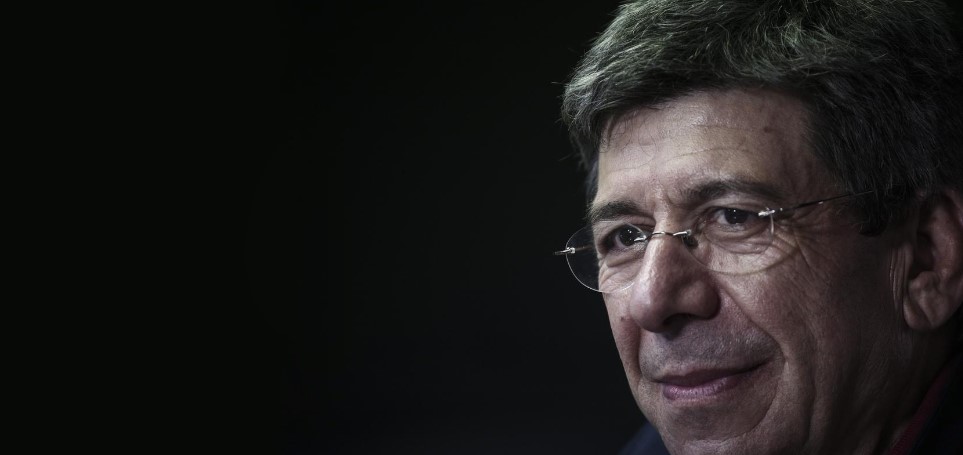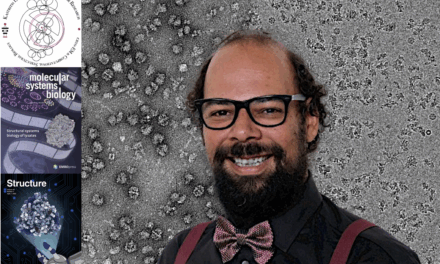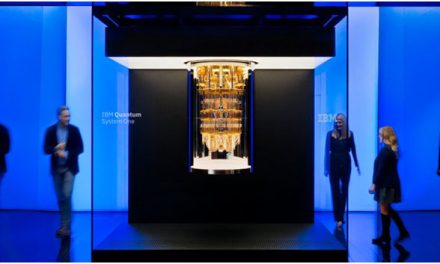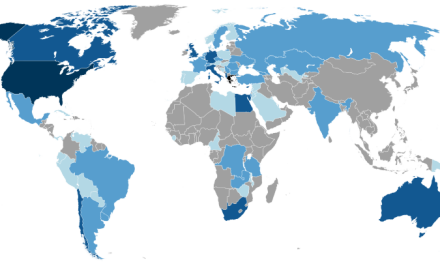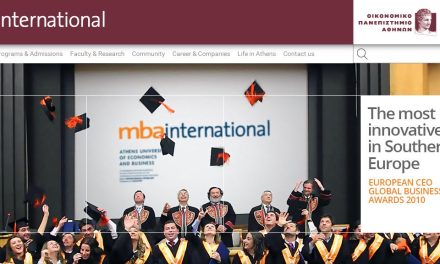The web portal Study in Greece is campaigning for the promotion and international visibility of Greek Universities and the comparative educational advantages of our country. In particular, the campaign focuses on the foreign language study programs that Greek Universities offer to Greek and international students. The initiative is supported by the General Secretariat of Higher Education of the Ministry of Education and Religious Affairs and the General Secretariat for Greeks Abroad and Public Diplomacy of the Ministry for Foreign Affairs. In this context, a number of educational programs and actions are presented in detail on a regular basis, such as undergraduate and postgraduate programs, summer schools etc, to inform international students about the many foreign language options offered by Greek Universities.
Study in Greece talked with George Pleios, President of the Special Interdepartamental Committee of the MSc in Media and Refugee Migration Flows offered by the Department of Communication and Media Studies of the National and Kapodistrian University of Athens in collaboration with the Department of Sociology of the University of the Aegean about the Master’s and the summer school in Mytilene organized in the framework of the master’s program. George Pleios PhD is Professor and Director of the Laboratory for Social Research in Mass Media at the National and Kapodistrian University Athens (NKUA). He has also taught as Visiting Professor at various universities abroad. He is a member of many Greek and international academic organizations and the current President of the Hellenic Sociological Society. He conducts on an ongoing basis about Greek print, broadcast and online news and has carried out over 25 research projects as Primary Investigator. Since December 2017, he is Chairman of the Department of Communication and Media Studies, at the University of Athens. He is also a founding member of the European Centre for Press Freedom and Media Freedom (ECPMF) and a former member of its Supervisory Board. Since November 2016, he is board member of the Greek National Council for Radio and Television (NCRTV).
 Could you describe the content and aims of the MSc in Media and Refugee & Migration Flows?
Could you describe the content and aims of the MSc in Media and Refugee & Migration Flows?
Our Interinstitutional postgraduate program has been in operation since the 2019-2020 academic year and it is organized by the Department of Communication and Media Studies of the National and Kapodistrian University of Athens in collaboration with the Department of Sociology of the University of the Aegean. Taking into consideration the very small number of existing programs in the field of journalistic coverage of refugee and migration flows in Greek and international educational institutions, as well as the racism prevalent in reporting, we intend to educate our students to produce accurate and comprehensive content. We firmly believe that this innovative postgraduate program contributes significantly to the growing necessity for accurate news coverage by providing students with interdisciplinary expertise on the contemporary presentation of the refugee/migration flows.
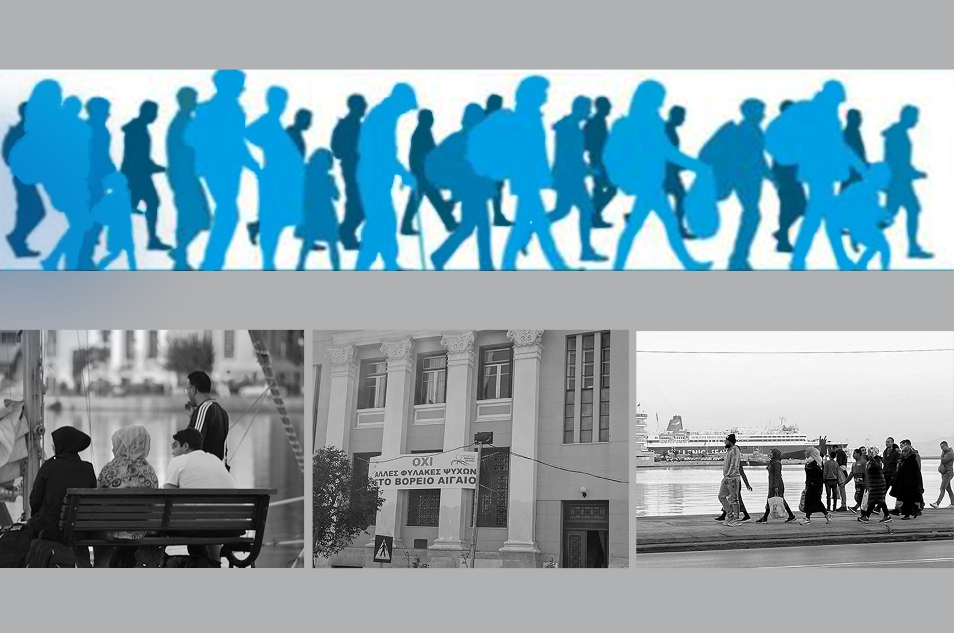 Given the fact that your program is taught in English, what are the educational and professional opportunities offered to foreign students?
Given the fact that your program is taught in English, what are the educational and professional opportunities offered to foreign students?
The fact that “Media& Refugee/Migration Flows” is taught in English facilitates foreign students to attend a master’s degree program in Greece. It also provides them with substantial academic knowledge on the social and political implications of cross-border refugee/migration flows by developing critical research skills. Taking up a master’s program in English, in a specialized subject, will be significantly advantageous in expanding their professional careers as well. In short, we are proud to be able to offer in Greece an international postgraduate program that specifically focuses on a critical global issue.
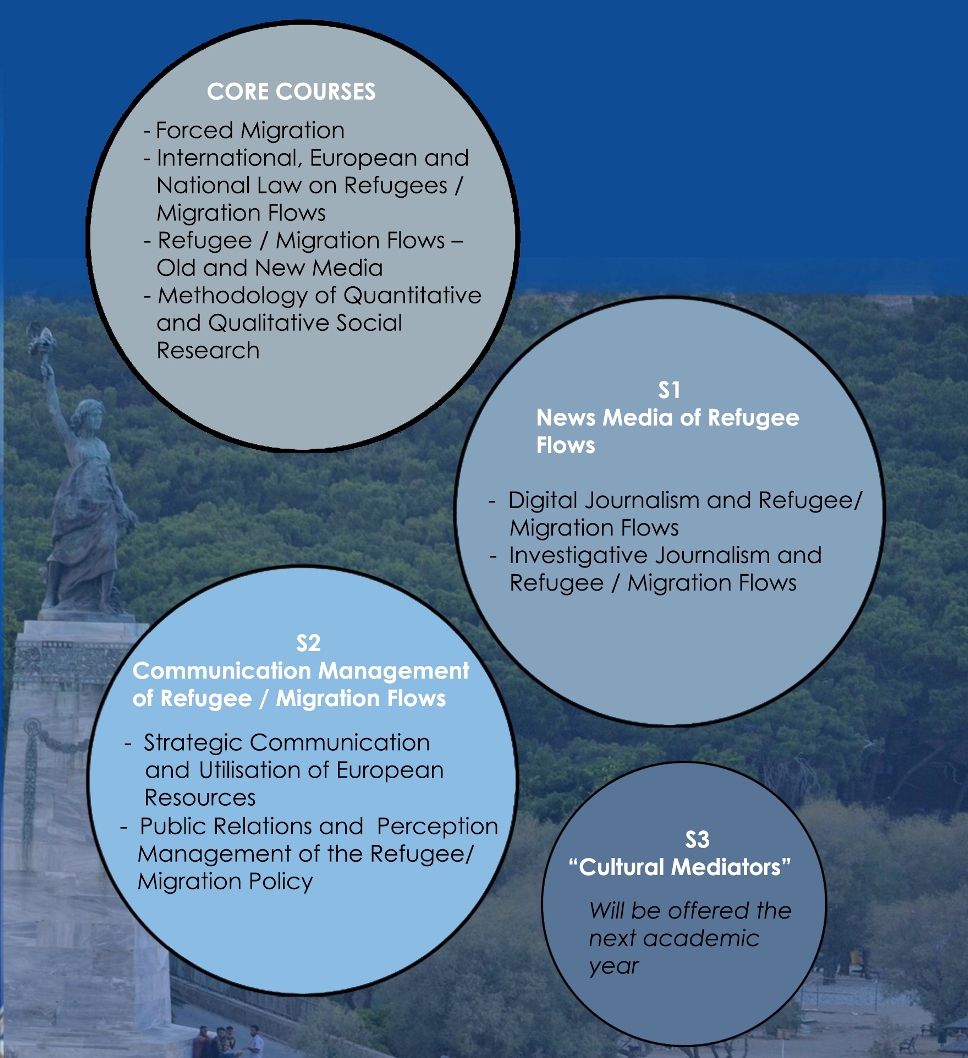 How many directions/specializations does the program offer? Could you briefly describe them?
How many directions/specializations does the program offer? Could you briefly describe them?
Our program offers a unique and multi-disciplinary curriculum via core courses and two specializations: The first one, “News media of refugee flows”, focuses on more in-depth knowledge on news coverage of refugee/migration flows, the relationship between new technologies and journalism, the use of social networks sites by the target group (refugees/immigrants) as well as the ways of ICT (Information and Communications Technology) use from both sides (host and country of origin) to name but a few. The second, “Communication management of refugee/migration flows”, focuses on issues related to European and national policies for the socio-economic integration of refugees /migrants and the ways in which they are represented in mass media. It also addresses issues of public relations, two-way communication processes and development of relationships between organizations and communities regarding the inclusion or refoulement where it is considered necessary.
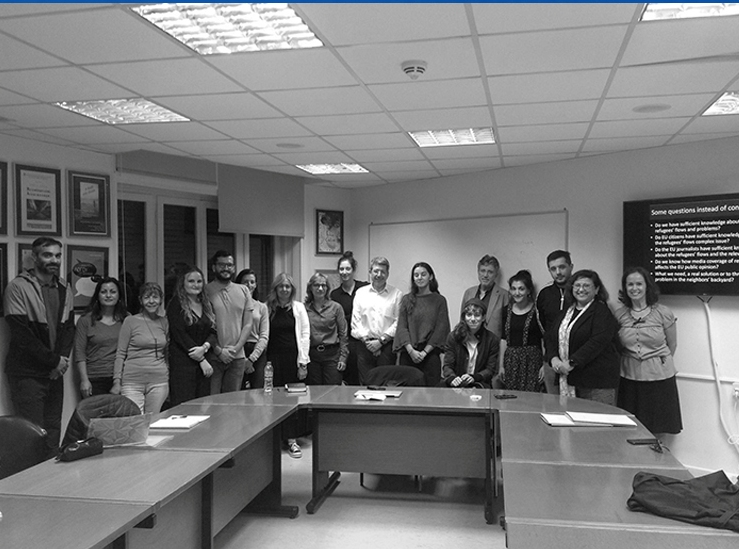 Migration flows constitute one of the most crucial issues of our time. In your opinion, how important is it to develop knowledge at the Master’s level in this field?
Migration flows constitute one of the most crucial issues of our time. In your opinion, how important is it to develop knowledge at the Master’s level in this field?
Not only, as I mentioned earlier, is there a very small number of such programs in Greece and around the world regarding this crucial issue, but the coverage of the refugee/migration issue is also usually distorted, misrepresented or presented in a non-holistic way, leading to an increase in racism and xenophobia. Moreover, there is no “refugee crisis”; there is a crisis in handling refugee flows which is a fact, a real event demanding action. In this context, I believe that developing a master’s level programme will contribute significantly to the postgraduate training of future journalists, executives in the private and public sector and press officers, by enhancing their skills and competencies on correct, reliable and objective journalistic practices and communication management skills related to refugee flows.
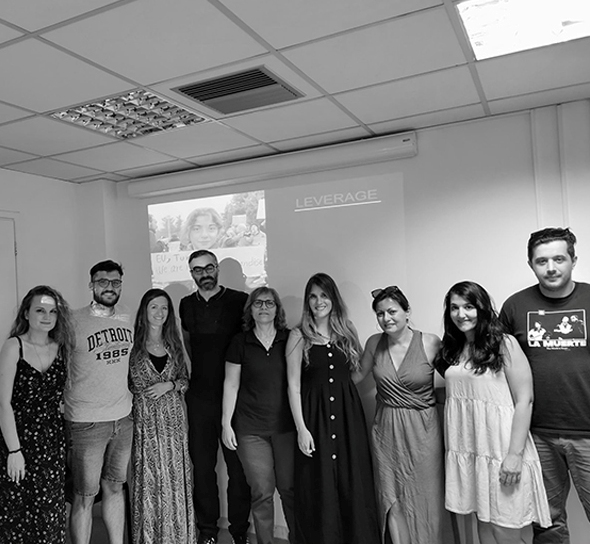 In viewing your website, we saw many international students talking about their experience attending your master’s program, so we assume that the output so far is satisfactory, correct?
In viewing your website, we saw many international students talking about their experience attending your master’s program, so we assume that the output so far is satisfactory, correct?
Although we faced many challenges due to the pandemic, the output we received from our graduates was indeed very satisfactory. In the previous academic year, we welcomed one student from Germany and one from Cyprus. The majority of our students (national and international) noted that they gained expertise on the subject of refugee/migration flows as well as valuable working experience by collaborating closely with international organizations and NGOs through our master’s internship program. We were in fact very happy to learn that four of our graduates have been employed by organizations focusing on migration. We hope that the trend continues for the current academic year since we had the pleasure of accepting students from various countries, including the United States, France, Italy, and Spain.
 Tell us about the summer school in Mytilene organized in the framework of the master’s program.
Tell us about the summer school in Mytilene organized in the framework of the master’s program.
We are happy to announce that our master’s Summer School this year will take place in Mytilene, as initially planned. The Summer School lasts two weeks and during this period, invited keynote speakers and experts from organizations and public entities present in Lesvos will share their experiences and provide students with inspirational and practical insight into refugee/migration management in the Aegean. Via a range of workshops, seminars and events, students will have the opportunity to relate their theoretical knowledge and skills with the actual situation in the field and gain a more comprehensive view on refugee/migration flows.
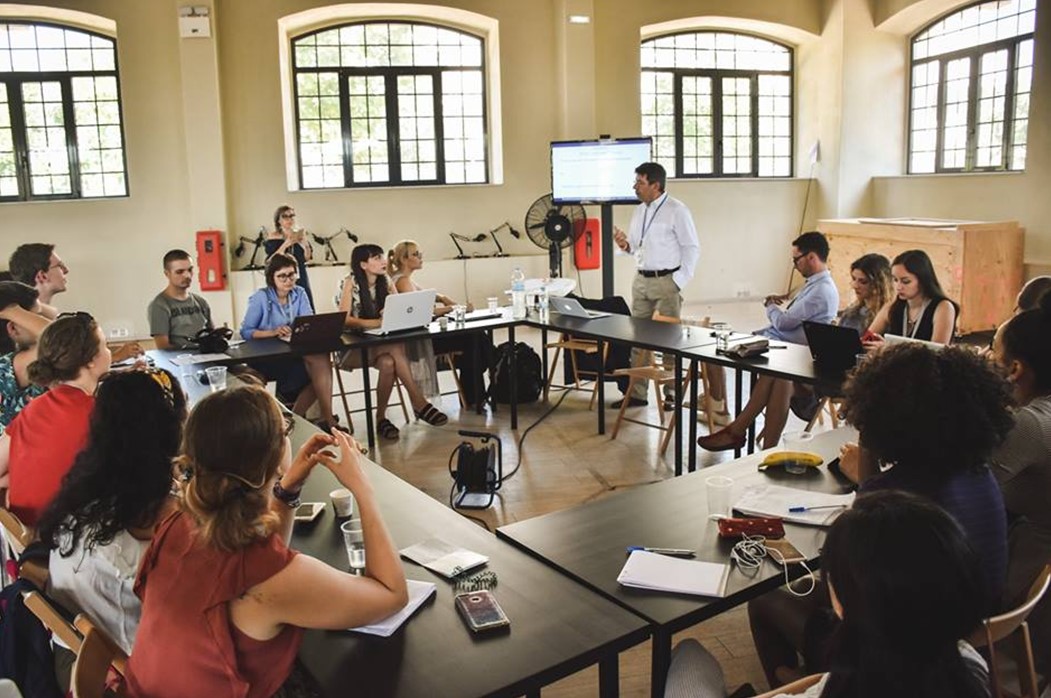 How does the interaction with academics from Europe and beyond, established professionals such as journalists, reporters, public servants and representatives of NGOs active in the field contribute to the master’s program?
How does the interaction with academics from Europe and beyond, established professionals such as journalists, reporters, public servants and representatives of NGOs active in the field contribute to the master’s program?
When implementing this master’s program, one of our aspirations was the programme to be enriched with academics, established guest speakers, professionals, such as journalists, reporters, executives, from Europe and beyond. We believe that this way we broaden our horizons reaching out to the international scientific community, fostering international dialogue on significant societal issues by offering simultaneously a multifaceted and interdisciplinary curriculum. Another significant contributing factor to this master’s program is our internship program, which forms part of its curriculum. The aim of the internship is to provide students with a unique opportunity to work closely with International Organizations and NGOs that the Department has signed Memoranda of Understanding (MoUs) with, to gain practical insight into the everyday working conditions of these organizations, to interact with executives and develop contacts and collaborations that will help them in their academic research and search of employment afterwards.
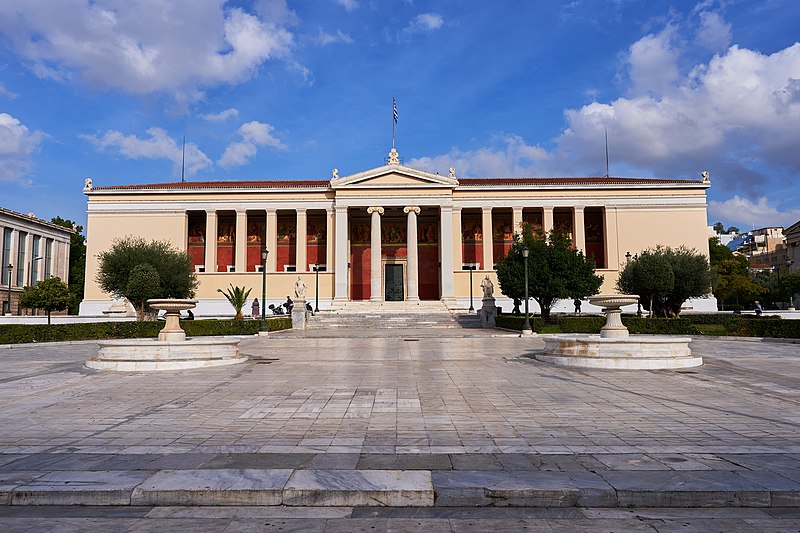
National and Kapodistrian University of Athens, Central Building (source: Wikimedia Commons)
Tell us a few words about the University of Athens – seen from the perspective of a traditional institution that tries to adapt to the contemporary world.
The University of Athens has established a tradition in scholarship and constructive participation in the social sphere. In a rapidly changing society and despite the various challenges, its mission is to continue providing a culture of free, creative and critical thinking, while making systematic efforts to broaden its horizons and scope to the international scientific community. By adapting to the contemporary world, the University of Athens takes the necessary steps to attain new goals whilst maintaining its core values, an orientation that our Department shares as well.
For more information click here: https://migromedia.gr/
F.K.

